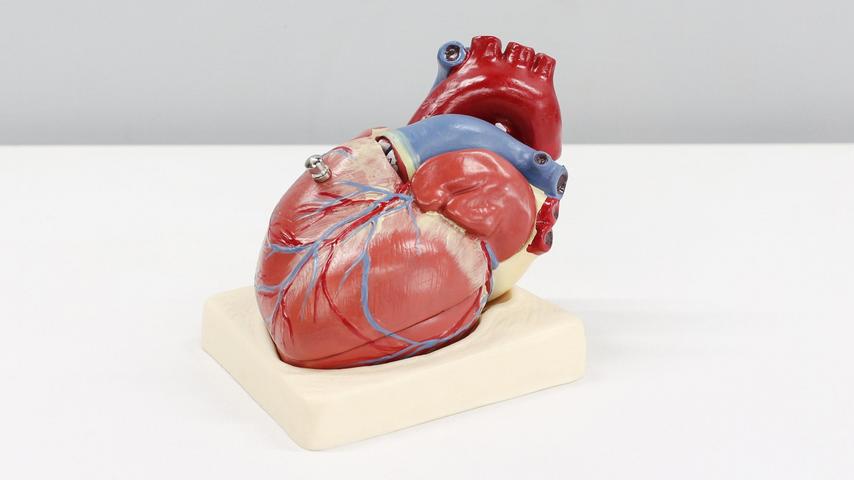What is a Heart Stent Surgery?

Heart stent surgery, also called Percutaneous Transluminal Coronary Angioplasty, is a procedure that helps open up a blocked artery to boost blood flow to the heart. The coronary arteries that supply oxygen-rich blood to the heart get clogged with plaque over the years. The plaque buildup affects the blood supply, damages the heart muscles, and increases the risk of a heart attack.
Heart stents help treat blocked arteries and improve the blood flow to the heart. A heart stent surgery is a minimally invasive procedure where the doctor places a wire mesh tube called a stent into the artery to open it and prevent it from narrowing again.
Doctors use stents coated with medication to keep the arteries open. These are the best stents for the heart as they are permanent.
Why do you need a heart stent?
An unhealthy diet and lifestyle, smoking, diabetes, cholesterol, and high blood pressure are the main reasons behind plaque buildup in the arteries. Plaque is made up of fats and cholesterol. It builds up on the inner walls of the coronary artery, blocks the blood flow to the heart, and causes chest pain.
Plaque also causes blood clots that block the blood flow to the heart. This can cause a heart attack.
A heart stent helps open up the artery allowing proper blood flow to the heart. It prevents chest pain and reduces damage to your heart.
What is the procedure of heart stent surgery?
Doctors perform the procedure for heart stent in the Cardiology department.
The Percutaneous Transluminal Coronary Angioplasty or heart stent surgery is performed under local anaesthesia.
First, they make a small cut in the arm, neck, or groin. Then, they insert a thin tube called a catheter with a cardiac stent and balloon on its tip. Doctors use a monitor and special dyes to guide the catheter through the blood vessel and reach the blocked artery.
Once doctors reach the blocked artery, they inflate the balloon. This expands the stent and stretches the artery allowing the blood to flow easily. After they place the stent in, they deflate the balloon and remove the catheter.
A heart stent operation takes about an hour, but you will need to stay at the hospital overnight or as long as the doctor advises.
What are the benefits of heart stent surgery?
The Percutaneous Transluminal Coronary Angioplasty improves the blood flow to the heart and reduces chest pain and shortness of breath. It prevents further damage to your heart. A stent after a heart attack can save your life.
It is minimally invasive and takes you a few days to recover. Comparatively, coronary bypass surgery is complex and takes longer to prepare for and recover from.
A heart stent procedure can improve your quality of life as it reduces fatigue and helps you function better in your everyday life.
What are the risks of heart stent surgery?
Although heart stent surgery helps reduce the damage to heart muscles, it has some risks, such as:
- Blood clots:
There are chances of blood clots forming in the arteries even after a heart stent surgery, which can lead to a heart attack. Consuming medications, such as aspirin, help diminish the risks of a blood clot.
- Bleeding:
The site on your arm or leg where the catheter was inserted could bleed. Although it could be just a bruise, sometimes you may experience severe bleeding that may need medical treatment.
- Heart attack:
You may get a heart attack during the procedure.
- Damage to the coronary artery:
During the procedure, your coronary artery may get damaged. This may require emergency bypass surgery.
- Stroke:
Although rare, if the plaque comes loose when the catheter is inserted, it could lead to a stroke. Similarly, a blood clot may also form in the catheter and move to the brain if it breaks loose. This could cause a stroke.
- Irregular heartbeat:
You may get an irregular heartbeat during the heart stent operation. Although it occurs for a short while, you may require a temporary pacemaker and medications to resolve the problem.
- Kidney problems:
The special dyes used during the procedure may damage the kidneys. It could be a risk, especially if you have a kidney problem.
Heart stent before and after
If doctors find a blockage in your coronary artery, they will advise a heart stent procedure. Before the surgery, you will have to
- stop taking medications, such as blood thinners, aspirin, and non-steroidal anti-inflammatory drugs
- stop eating and drinking six to eight hours before the heart stent procedure
- take your medicines as advised by the doctor but with small sips of water
After the stent for heart blockage has been placed in your coronary artery, here are some necessary things you need to follow to prevent plaque buildup and reduce the risk of heart disease:
- Follow an exercise regimen approved by your doctor
- Follow a low-fat diet
- Reduce cholesterol levels
- Manage diabetes and blood pressure
- Quit smoking and tobacco use
- Minimize stress
- Reduce weight if you are overweight
- Take all the medications as prescribed by the doctor
- Resume daily activities after consulting with your doctor
Heart stent surgery cost
A stent for a heart patient in India costs approximately 1.2 lakhs to 1.6 lakhs. However, it may differ with city and hospital.
Gleneagles Aware Hospitals, L B Nagar, Hyderabad, has some of the best cardiologists and cardiac surgeons in Hyderabad with expertise in all sub-specialities of cardiology. They will guide and advise you on heart stent surgery and related treatment. Book an appointment at Gleneagles Aware Hospitals, L B Nagar, Hyderabad, now!
FAQs
How long does it take to recover from a heart stent procedure?
A heart stent procedure is minimally invasive and takes three to four days to recover. You may return to your everyday routine after consulting with your doctor.
Are there any restrictions after heart stent surgery?
Doctors will advise you to avoid lifting heavy weights or doing physically strenuous exercise for a couple of days after the surgery. Consult your doctor about any other restrictions that you will need to follow.
How long does the heart stent last?
Heart stents are made from stainless steel or platinum-chromium. These are also coated with drugs to prevent re-narrowing of the arteries. These stents are called drug-eluting stents and are permanent.
Specialities
Clear allMeet the doctor

Dr Mukhesh Rao
Cardiology
M.B.B.S, M.D (Internal Medicine), D.M (Cardiology)











